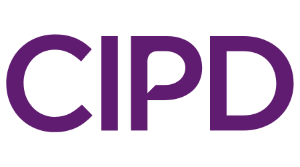Study options
- Starting in
- September 2025
- Location
- Mile End
- Fees
- Home: £15,250
Overseas: £33,500
EU/EEA/Swiss students
What you'll study
The International Human Resource Management MSc examines contemporary issues and best practice in human resource management. It adopts an international focus to reflect the diversity of our students and the global nature of current HR challenges.
You will learn about the crucial role of HR professionals in helping organisations develop and manage global talent to achieve business success. This programme aims to equip students with extensive knowledge of HR practices, as well as the ability to think critically and offer insightful, responsible, and creative analysis of people practices.
Topics covered by the course material include:
- People analytics and strategy.
- Reward management.
- Diversity and culturally distinct workforces.
- Leadership.
- Organisational change.
- Globalisation and other contemporary HR challenges.
CIPD Accreditation
The International Human Resource Management MSc is fully accredited by the Chartered Institute of Personnel and Development (CIPD), the only HR body in the world that can award chartered status to individual HR professionals.
CIPD credentials represent a mark of quality and are increasingly desirable to employers around the world, with CIPD hubs existing in the UK, Ireland, Middle East and Asia, and 160,000 CIPD members registered worldwide.
Upon enrolment, the School of Business and Management will pay your initial CIPD Student Membership fee, which gives you access to CIPD's resources and network of HR professionals.
Successful completion of our IHRM MSc leads to an automatic upgrade from Student Membership to Associate Membership. For those with relevant professional experience, this also paves the way for progress towards the higher status of Chartered Member. Please see the CIPD website for more information.
Structure
- Seven compulsory modules.
- Choose one elective module.
- Compulsory 12,000 word dissertation.
Compulsory/Core modules
This module examines concepts of workplace equality, diversity and inclusion, and theories of occupational segregation/labour market segmentation. It explores diversity and equality across the dimensions of gender, race, disability, religion, age and sexual orientation and considers the organisational processes, which produce and reproduce inequalities of outcome among diverse social groups in workplaces and careers. The module also considers equality and diversity policy and practice at labour market and organisational levels. Different national contexts are investigated.
Reward management is one of the key components of human resource management. It is one of the most sensitive and problematic areas of people management that poses additional issues when cast in an international setting. The course starts by giving students a theoretical grounding before applying this knowledge to issues such as payment systems, executive compensation, equal pay, payment structures and pay negotiations. These issues are examined from an organisational and international perspective with topical case studies and practical examples.
The dissertation requires a demonstration of ability to carry out an original investigation into an area of interest. The process should reflect skills of formulating research questions, synthesising and analysing data, drawing insights and conclusions, and written communication. An investigation of an issue relevant to the content of the Programme of which it forms a component will be guided through the dissertation process by a supervisor. Students are required to take the compulsory Research Methods module.
This module will investigate and discuss leading change in organisations from both a theoretical and practical perspective. Marrying theory and practice will allow students to critically reflect on organisational change processes through both a scientific and practical lens and to apply their knowledge directly to real world cases and practices. Understanding different perspectives, practices and challenges of leading change will also contribute to students' employability and their personal development. More specifically, how they can become both an effective and a responsible future contributor to organisational change.
This module provides learners with a critical understanding of the internal and external contexts of contemporary organisations, including the managerial, business, regulatory, labour market and institutional contexts. It further examines the role of the HR function, HR strategy and the link between HR and organisational performance. The module also introduces the major functions of HRM including resourcing, performance management, learning and development and explores the applications in professional practice in different types of organisational scenarios (large, small, global, national, public, private). This is further achieved through additional skills workshops that engage learners in the analysis of case studies, role play and problem solving exercises.
The nature of business and management/ human resource management research and business techniques is explored to build knowledge, skills and expertise to undertake a successful MSc dissertation. Fundamentals of business management/HR research help design relevant and rigorous dissertation projects through suitable quantitative and/or qualitative research methods techniques. The entire research process from finding a research question to the results including the write-up is developed. The dissertation will also provide the fundaments for future research projects in academia and different business contexts.
This module consists of Professional Development workshops. These workshops include a mixture of knowledge dissemination, interactive discussion, and the use of worked examples and role plays (including a number of case studies based on actual organisations) to provide students with practical insight and initial development of the necessary skills to become effective in addressing issues that arise in various areas of HR including: recruitment and selection, performance management, negotiation and bargaining, career development and talent management.
Organisational behaviour theories and ideas from psychology provide insight on how individuals/groups behave in organisational settings. Various organisational models are analysed for future HR practitioners to enhance self-awareness and interpersonal skills. Individual differences, managing group dynamics, communicating with impact, influencing and persuasion skills, working across differences, managing workplace politics constructively, building nurturing relationship for professional growth and career progression are examined. Self-development through practical and experiential activities are embedded in weekly sessions.
This module aims to provide learners with a critical understanding of principles and practices of HR analytics and the importance of evidence-based practice more broadly. The focus is on equipping students with strong analytical skills that can be applied to identify and evaluate effective data sources as well as use relevant techniques to interpret and analyse data in support of HR and organizational strategy. The knowledge and competencies gained are then applied to the analysis various aspects of people management such as workforce planning, diversity management, training and development and pay and performance management and organisational change, in different types of organisational and dynamic external settings.
Elective modules
Corporate Social Responsibility will offer students an introductory and in-depth module unpacking the sensitive relationship between corporations and issues of social justice, environmental destruction (animal, climate, pollution, ecologies) and labour rights. At a time when globalisation is perceived as a threat to international business addressing inequalities across the global North and South, this module will provide postgraduate students with indispensable knowledge about key issues facing corporations today. The module will also address both philosophical issues that include ethical theories, moral debates and social scientific perspectives as well as a grounding in real life case studies and access to a local stakeholder engagement project with charities in Tower Hamlets and Poplar. Specific modules will cover a wide-range of subjects including: 'greening' management (reducing emissions, waste management, protecting biodiversity), workers rights (trade unions, ILO, outsourcing, supply-chains), sustainable consumption (ethical marketing, corporate lobbying, consumerism), and promoting democratic processes (governance, accountability, stakeholder engagement).
This module focuses on a practical project to provide participants with a hands-on experience of using different types of evidence and information to identify real HRM problems and their potential solutions. Evidence-based practice approaches consider a broad range of sources of information and crucially develop skills around critical appraisal in order to judge the trustworthiness of information. The learner develops skills related to collecting relevant information of different types (including scientific evidence, organisational data, professional expertise and stakeholder perspectives and values).
Resourcing and Talent Management as a subject incorporates many aspects of the HRM practice with links to organisational performance. Central to organisational success is an ability to attract and retain the right talent committed to adding value to the organisation and its stakeholders. This module focuses on these activities both from a strategic and practical perspective in a global context, namely Employee Value Proposition (EVP), employee attraction, assessment, selection, onboarding, engagement and retention. It requires students to critically evaluate and reflect on Resourcing and Talent Management theory and practice both from an ethical and professional standpoint, and introduces learners to a range of approaches and tools deployed by organisations, both in the UK and internationally, in support of their strategic choices and objectives.
All modules are subject to change.
In addition to the above modules, students will have the opportunity to engage with leading practitioners in the field of HR, through a series of interactive CIPD professional development workshops that take place throughout the year.
Assessment
Modules are assessed through a combination of coursework and written examinations, as well as individual and team projects.
Dissertation
Previous dissertation subjects include:
- Why expatriate employees often return before the end of their assignments.
- Assessing and developing fair and rigorous payment systems suitable for multinational corporations.

—"The experience I had in this course surpassed all expectations, as I connected with a diverse group of professionals, engaged with seasoned professors and delved into current and practical aspects of HR. The collaborative environment facilitated invaluable discussions and networking opportunities, while the expertise of the professors illuminated complex concepts. The course’s emphasis on up-to-date industry HR practices equipped me with skills needed to confidently address real world challenges. On reflection, this comprehensive course not only expanded my knowledge, but also provided a solid foundation for future success in the field."
Peris Anastasiou, International Human Resource Management MSc, 2016, now working at Google
Teaching
Teaching for all modules includes a combination of lectures, interactive seminars, presentations and use of a virtual learning environment. Each module consists of contact time with your lecturers, group discussions and self-directed further study.
The direction of your individual study will be guided by the formal study sessions you attend, along with your reading lists and assignments.
We invest in your educational and personal development, and you will be assigned an Academic Advisor who will support you throughout your time at Queen Mary.
Where you'll learn
Facilities
- ThinkPod interactive collaboration space with presentation, recording and video conferencing facilities.
- Access to the Graduate Centre's postgraduate common room and rooftop terrace.
- 24-hour library on campus.
Campus
Teaching is based at Queen Mary’s main Mile End campus, one of the largest self-contained residential campuses in the capital. Our location in the heart of London’s East End offers a rich cultural environment.
We have invested £105m in new facilities over the past five years to offer our students an exceptional learning environment. Recent developments include the £39m Graduate Centre, providing 7,700 square metres of learning and teaching space.
The campus is 15 minutes from Central London by tube, where you will have access to many of the University of London’s facilities, such as the Senate House library.

About the School
School of Business and Management
The School of Business and Management has a reputation as a socially engaged management school, with an innovative, multidisciplinary, mindful and responsible approach. We invite our students to ask incisive questions, to challenge their assumptions, and to search for solutions to real-world challenges.
We ensure students experience innovative and engaging educational pathways, alongside supportive staff and excellent research facilities.
The School is accredited by the Association to Advance Collegiate Schools of Business (AACSB), which ensures that the highest standards of excellence in teaching, research, curriculum, and learner success are met.
In the most recent Research Excellence Framework (REF 2021), the School of Business and Management dramatically moved up the Times Higher Education rankings. Among 108 UK business schools, the School now ranks:
- 22nd for overall research quality (up from 39th in REF2014)
- 28th for research outputs (up from 34th)
- 12th for research impact (up from 24th)
- 21st for research environment (up from 59th)
Queen Mary is also part of the Russell Group - a body of leading UK universities dedicated to research and teaching excellence.
Career paths
The International Human Resource Management MSc is an ideal springboard to a long career in human resources. Graduates will be well-equipped to pursue positions in a number of global industries.
You will graduate with a CIPD Level 7 accreditation on successful completion of the course.
Previous graduates are now working in roles such as:
- Human Resource Manager
- Project Manager
- Management Consultant
in organisations such as:
- Accenture
- Chamber of Commerce
- PwC
Fees and funding
Full-time study
September 2025 | 1 year
- Home: £15,250
- Overseas: £33,500
EU/EEA/Swiss students
Conditional deposit
Home: Not applicable
Overseas: £2000
Information about deposits
Part-time study
September 2025 | 2 years
- Home: £7,800
- Overseas: £16,750
EU/EEA/Swiss students
Conditional deposit
Home: Not applicable
Overseas: £2000
Information about deposits
Queen Mary alumni can get a £1000, 10% or 20% discount on their fees depending on the programme of study. Find out more about the Alumni Loyalty Award
Funding
There are a number of ways you can fund your postgraduate degree.
- Scholarships and bursaries
- Postgraduate loans (UK students)
- Country-specific scholarships for international students
Our Advice and Counselling service offers specialist support on financial issues, which you can access as soon as you apply for a place at Queen Mary. Before you apply, you can access our funding guides and advice on managing your money:
Entry requirements
UK
Degree requirements
A 2:1 or above at undergraduate level in any subject.
Other routes
Candidates that do not currently meet the set entry requirements may also have the option to study the Graduate Diploma in Humanities and Social Sciences. Meeting the required grades on completion of this programme will provide a pathway to study MSc International Human Resource Management.
Find out more about how to apply for our postgraduate taught courses.
International
English language requirements
The English language requirements for our programmes are indicated by English bands, and therefore the specific test and score acceptable is based on the band assigned to the academic department within which your chosen course of study is administered. Note that for some academic departments there are programmes with non-standard English language requirements.
The English Language requirements for entry to postgraduate taught in the School of Business and Management falls within the following English band:
Band 4: IELTS (Academic) minimum score 6.5 overall with 6.0 in each of Writing, Listening, Reading and Speaking
We accept a range of English tests and qualifications categorised in our English bands for you to demonstrate your level of English Language proficiency. See all accepted English tests that we deem equivalent to these IELTS scores.
Visas and immigration
Find out how to apply for a student visa.






